Making Connections: An Interview with Amy Q. Barker
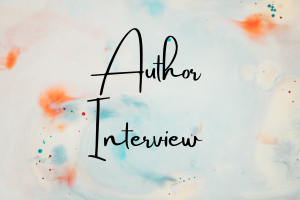 It’s wonderful to welcome fellow women’s fiction author Amy Q. Barker to the interview series. Amy and I crossed paths on social media, and here we are, chatting about books. (I’m pretty certain we could chat about other things, too, like nature, living in the Midwest, and more.) Amy is the author of five books—Rue, Punk, Bibliointuitive, Maplewood, and Lap Baby—and she recently undertook the process of reissuing book covers for some of these. Readers have praised Amy’s “unique and interesting plots” as well as her ability to help readers “learn something.” Amy has also garnered rave reviews from Reader’s Favorite, The BookLife Prize, Kirkus Reviews, Midwest Reviews, and more. Currently writing her sixth book, Amy is busy! So I’m thankful she took the time to answer a few of my questions.
It’s wonderful to welcome fellow women’s fiction author Amy Q. Barker to the interview series. Amy and I crossed paths on social media, and here we are, chatting about books. (I’m pretty certain we could chat about other things, too, like nature, living in the Midwest, and more.) Amy is the author of five books—Rue, Punk, Bibliointuitive, Maplewood, and Lap Baby—and she recently undertook the process of reissuing book covers for some of these. Readers have praised Amy’s “unique and interesting plots” as well as her ability to help readers “learn something.” Amy has also garnered rave reviews from Reader’s Favorite, The BookLife Prize, Kirkus Reviews, Midwest Reviews, and more. Currently writing her sixth book, Amy is busy! So I’m thankful she took the time to answer a few of my questions.
Christina: Your website states that you write “books about extraordinary women who inconveniently fall in love during a major life crisis.” How did you decide to put falling in love and crises together? How do you decide which life crises to highlight? Do you think there are crises you won’t write about?
Amy: I never write about rape, murder, or other graphic trauma. I focus on loss of a loved one, survivor’s guilt, or an unexpected tragedy. I want my characters to show the progression of healing in their stories, so that when they do fall in love, they are bringing a more integrated version of themselves to the relationship. I want to reflect all the broken and redeemed pieces of my characters’ hearts. In Lap Baby, I was inspired to write after watching a TV show about a flight attendant who survived a plane crash. In the book, twenty years after a plane crash, three female survivors are still trying to understand how to measure the weight of what happened during the crash against their current lives, coping in different ways and striving toward understanding and forgiveness.
Christina: Also, what makes an “extraordinary woman?” What extraordinary women have been an influence for you?
Amy: A woman is extraordinary when she faces her demons, seeks to understand, recover, and learn from past mistakes, tragedies, and accidents. Essentially, my protagonists try to render something good out of something bad. When I wrote Punk, I was inspired by my own grandmother’s diary from 1932. In a day and age when most women didn’t work, she managed the financial books at the largest department store in Rochester. She fell in love with a young man and got engaged, but then a sudden twist of fate left her heartbroken. In real-life, my own grandmother stopped writing after 1932, so in Punk I speculated a new story for her, retold in first person by her granddaughter and great-granddaughter. All three women became my inspiration for “extraordinary women” who forged a new future and a new love out of the remains and wreckages of their pasts.
Christina: Connection seems to be a big theme in your work as well. What about connection compels you to write about it? Is connection important to your own life?
Amy: Yes, I think connections are what keep us human and grounded (or as I like to say in my books, connections keep us “tethered” to this wild, amazing, and sometimes harsh world). Without connections, we often drift, become lonely, find ourselves in a dark, scary place. But these connections can bolster us, draw the fight back into our blood, bring us back to ourselves, to our hope and life and love. In my book, Maplewood, I highlight how Amanda, who has suffered the tragic loss of her husband in a bombing, seeks solace and strength by moving back into her childhood home. Her black, unknown future suddenly flips on its head, allowing her family, friends, and other long-ago connections to blossom again, saving her from herself and leading her into the light of a new love.
On another quick personal note about connections, I believe books are great connectors—this is something that I detailed extensively in my book, Bibliointuitive, about a girl who finds new meaning in her life following an accident when the books she reads suddenly begin to reflect something magical in her real-life. This story is based on my own real-life “gift” and since I started writing six years ago, these book connections have only grown in number and intensity.
For instance, I became best friends with a woman, a complete stranger, as a result of my books. A week after my book, Rue, was published (which is about a beautiful blind lounger singer who falls in love for the first time), I was sitting in a restaurant in Florida on vacation with my husband. A woman was playing piano in the background. She asked the crowd if they had any requests. The couple seated next to us hollered “John Cougar Mellencamp,” which made us laugh and ask, “Indiana?” to which they responded, “Yes, you?” and we said, “Yes!” We struck up a conversation with the couple, who lived (coincidentally) in the same town. The piano player was singing the entire time, but also listening to our conversation. I mentioned to the couple that I just had an article written in the local paper about Rue. They asked a bunch of questions about the book and the piano player overheard that the story was about a lounge singer, so she interjected her own thoughts about being a lounge singer. It was fascinating and after the song ended, I went up and introduced myself. That first conversation led to more conversations, and suddenly, we were fast friends with the piano player. Now every time we’re in Florida, we get together, not only as her “groupies,” but also as her friends.
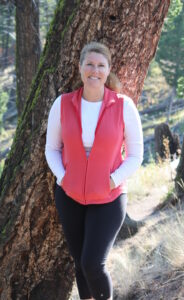
Christina: Let’s talk a little bit about settings! Your books take us from the Finger Lakes to San Francisco and to other places as well. How do you decide where to set your books? How much research goes into making sure these places are adequately portrayed?
Amy: I write about places that I’m familiar with (places where I have lived or visited) and that give me that squishy “feeling”—that nebulous vibrating sense of energy—maybe it’s the people or the landscape or the quirky shops, restaurants, streets. Most are small towns because that’s where I feel the most at home, having grown up in a quaint village in Western New York, which is the setting of my book, Maplewood. As far as research, when I visit these locations (before I start writing), I take a lot of notes to keep track of the spots or plot points that I want to highlight that are integral to the setting.
For instance, in both Punk and Maplewood, everyone in Rochester knows about Charlotte beach (pronounced “Shar-LOT”) on Lake Ontario, so I set several scenes there, including a ride on the famous historical Dentzel carousel. In Bibliointuitive, I illustrated the sweet, magical ambiance of French Lick, Indiana and the near-destruction and amazing reconstruction and rebirth of the West Baden Hotel. In Lap Baby, I purposely set the three women in disparate locations (one west coast, one mid-west, one east coast). Having the youngest character, Paige, the lap baby survivor, be integrated into the small community of Emigrant, Montana through her job and through her adoptive parents, allowed me to explore what it would be like to grow up in the spectacular Paradise Valley of the Absaroka Mountain Region, one of my favorite places on earth. Finally, in Rue, I wanted to write about my own intense exploration and love of the wondrous city of San Francisco, so I researched and wrote about how a woman who is blind navigates and lives independently there while also holding down two jobs. My goal in my books is to make my settings be as inspirational as my characters.
Christina: As you know, a lot of people have a lot of feelings about the term “women’s fiction.” As a women’s fiction author, do you have thoughts on whether it’s a misnomer? Do you think there’s a more accurate way to categorize your work?
Amy: I’m actually quite thankful for this genre. When I first started writing, I met an author of fantasy and she asked me what my genre was, and I simply said, “I have no idea.” I tried to describe the story I was in the middle of writing, and she said, “Oh, Chick-Lit.” I had never heard this term before and my first reaction was, “No way! That is not Chick-Lit. It sounds so dismissive, and I don’t like it.” Then, years later, when I started researching categories on Amazon before Rue was published, I found the Women’s Fiction genre and immediately felt like it was a better fit for me. Granted, I have since learned that Chick-Lit is very similar, with a lighter tone, so nothing wrong with that! In my mind, Women’s Fiction may cross several genres, including Romance, Coming of Age, Suspense, Mystery—it may contain many elements, but it also tends to dive deeper into a subject matter and focus on the female character’s journey to discovery, fulfillment, recovery, and redemption. On another note, when I first started writing, my main goal was to write the type of books that I would like to read. As avid reader myself, I want to get lost in the characters—both in their struggles and their triumphs. Women’s fiction strives to achieve that, and I’d like to think my books do as well.
Christina: I love to hear about authors and their writing practices and processes. Do you have a daily writing practice? When you have a new idea, what’s your process for getting it from your head onto the page?
Amy: I wake up at 4:00am every day, pound a quick coffee (the elixir of life 😊) and start writing. I write for three hours before logging into my day job. I’m a morning person and this is the best way for me to make the writing work with my busy schedule. At 4:00am, the household is completely quiet, and all my thoughts can focus on the words and the story. Story ideas pop into my head at all times of the day or night. I usually keep post-its nearby to record these ideas before they slip away. When I finished writing Rue, and my editor and I had just completed an exhausting post-apocalyptic editing session, I told her if this book went well, I had a hundred more story ideas in my head to write. I think I nearly gave her a heart-attack! When I think about it too much, I get overwhelmed, but now that I’ve been doing this for six-plus years, I just tell myself: one word at a time, one page at a time, one story at a time.
Christina: Independent publishing is not for the faint of heart. It’s a lot of work, and it can be daunting (though I suppose we can say that about every aspect of all sorts of publishing!). Why did you choose to independently publish your books?
Amy: In the beginning, I was such a novice when it came to writing and publishing. I had no idea what I was doing! I watched about thirty hours of YouTube videos trying to understand the process of publishing a book, and I felt like I still didn’t understand. At first, I tried the traditional publishing method and sent out hundreds of queries to agents, but after a slew of rejections made me want to lay down and die, I finally realized that whatever I was selling, they weren’t buying. I would just have to figure out a different way to get it done. What I learned from that exercise was that many of the agents and the publishers were (and are still) at the mercy of the latest and greatest “new shiny object”—in other words, whatever the newest political topic or trend in the media or next “big” thing is, they have to chase it and that’s all they will focus their attention on. It doesn’t matter if you’ve written an amazing book and if your query is extraordinary—if it’s not the “new shiny object,” it won’t be seen or heard. So, instead of pounding my head against the wall on that front, I decided to self-publish. Granted, yes, self-publishing is daunting and scary and of course, a ton of work, but I feel like it has been the right decision for me.
Christina: Author Instagram profiles intrigue me, and I see that you post a lot about nature. How different is the environment where you now live as opposed to where you grew up? Does nature inspire you? Do you like to spend time outdoors, and if so, what do you do?
Amy: I love the outdoors! I grew up in a small town and we spent hours playing in the creek, hiking the woods, running around the neighborhood. We even spent hours outside in the dead of winter, making igloos, sledding, ice-skating, skiing, everything snow-related (see Maplewood for more details). I’ve brought that love of nature forward into my adulthood and I spend as much time as I can outside. My husband and I live in a tiny house in the woods on a lake in the middle of Indiana, so I try to walk or hike almost every day. In addition, we travel a lot and focus on locations that have great hiking, biking, and nature trails. One major theme in all my books is how nature weaves its way into my character’s lives—as a panacea and source of renewal in the midst of their struggles.
Christina: What does literary success mean to you?
Amy: Right now, I try to focus on the positives and be grateful—I’ve written and published five books! This is something I dreamed about since I was twelve years old. I’m proud of myself and of my books. I’m blessed to have great reviews, so I know my books have touched other’s lives the way I intended when I was writing them. I’m so thankful for my readers and for everyone who has helped me along the way. Would I love to expand my readership? Yes, of course, I think that’s every writer’s goal. I will attempt to do everything in my power to make that happen, but I also recognize “success” is based on luck, timing, and arbitrary influences outside of my control. So, in the meantime, I’ll just keep “doing me” the best way I know how—by typing one word after the other.
Amy can be found in multiple places!
Website: https://www.amyqbarker.com/
Instagram: @amyqbarker_author
Facebook: @amy.barker.9003
BookBub: @amy-q-barker
Thanks to Amy for agreeing to this interview! If you know of an artist, author, or podcaster who’d like to be featured in an interview (or you are an author who would like to be featured), feel free to leave a comment or email me via my contact page.

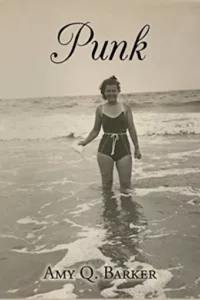
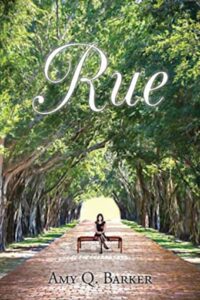
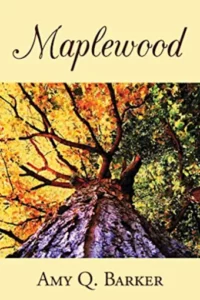
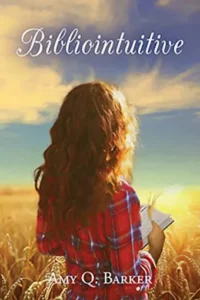
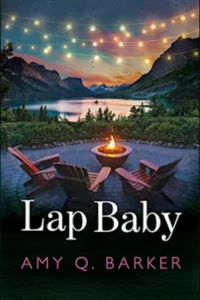
I have read all of Amy’s books. They are very well written and enjoyable. Each one transforms me to a place and time that I enjoy visiting. I can’t wait to read the next one.
Thanks for reading! I love hearing from people who’ve read books by authors I feature.